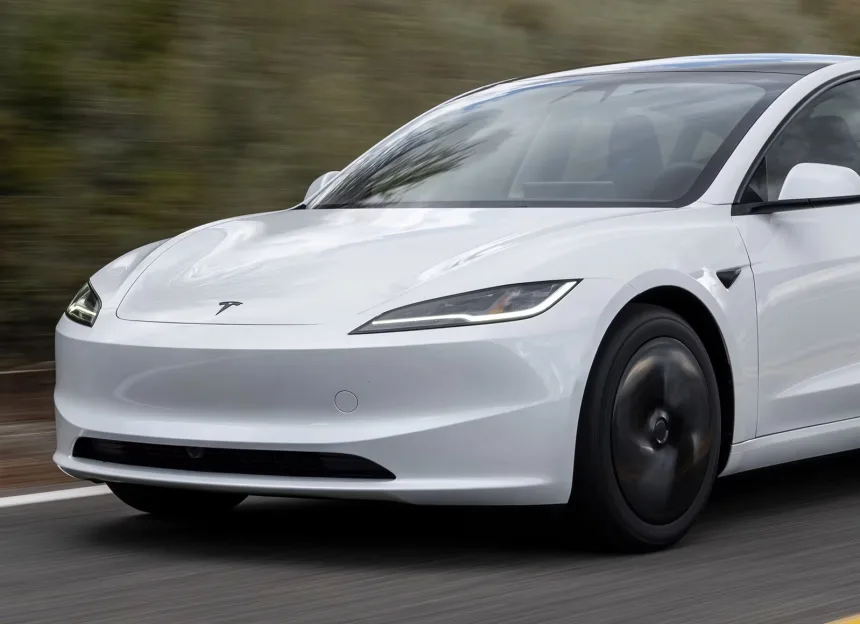Can U.S. Automakers outrun China’s EV Surge without copying their playbook?

Detroit’s automotive leaders are sounding alarms as Chinese automakers rapidly expand in the global electric vehicle (EV) market, highlighting both opportunities and challenges for the U.S. industry. While China’s automotive sector has surged under extensive state support, U.S. executives insist that adopting similar practices is not a feasible or desirable path.
Ford Motor Co. CEO Jim Farley described Chinese EV companies, including BYD Co. Ltd., which sells models under $10,000, as “an existential threat” to traditional U.S. manufacturers. However, he emphasized that American companies have distinct advantages in infrastructure, innovation, and workforce experience, which can help them maintain a competitive edge.
“Ford will always advocate for policies that level the playing field,” Farley told The Detroit News. “We’ve made progress in the U.S., but government support still lags behind the extensive subsidies and incentives offered by China.” Farley also noted growing bipartisan support for policies aimed at strengthening U.S. automakers’ global competitiveness.
China’s dominance in automotive manufacturing is the result of decades of coordinated policy efforts. After the 1980s, foreign automakers entered China through joint ventures with domestic companies, often state-controlled, and the market only exceeded 2 million vehicle sales annually after China joined the World Trade Organization in 2001. By 2024, China’s annual vehicle sales topped 31 million, with EVs and plug-in hybrids now representing the majority of the market.
Experts point to China’s long-term industrial planning, particularly the 2015 “Made in China 2025” initiative, as a critical factor in the country’s sustained growth. According to Bill Russo, CEO of Automobility Ltd., “China’s consistency in policy and industrial direction gives it a significant advantage over the U.S., where regulations and incentives often fluctuate with political changes.”
Chinese EV manufacturers have benefitted from at least $230 billion in subsidies between 2009 and 2023, not including regional incentives or support for battery production and infrastructure. These subsidies, combined with low-cost labor and rapid automation, allow companies to price vehicles aggressively, fueling intense domestic competition often referred to as “involution.” While some companies, such as BYD, have seen net income declines due to the competitive market, government interventions aim to stabilize pricing and shift focus toward innovation and vehicle features.
U.S. automakers are adapting to these pressures. Ford has launched its Universal Electric Vehicle (UEV) platform, aiming to produce a midsize EV truck priced around $30,000 at the Louisville Assembly Plant by 2027. The company seeks to match Chinese production costs while maintaining U.S. labor standards and sustainability practices. Similarly, Rivian CEO RJ Scaringe noted that while Chinese firms benefit from subsidies and low-cost labor, their manufacturing methods and technology are not inherently superior to U.S. standards.
Concerns over intellectual property, supply chains, and national security are also shaping U.S. strategies. China controls large segments of critical materials such as rare earths and EV battery production, prompting U.S. policymakers and companies to prioritize domestic sourcing and innovation to protect competitive advantages.
Despite these challenges, the U.S. automotive industry retains significant strengths, including a highly skilled workforce, strong university-industry collaboration, established consumer loyalty, and experience in large-scale manufacturing. Experts argue that leveraging these assets while investing in EV technology, supply chains, and partnerships can allow American automakers to compete globally without replicating China’s intensive and often ethically problematic practices.
As the EV race accelerates, executives like Farley and analysts warn that the stakes for U.S. manufacturers could not be higher. “We’re in a global competition for manufacturing dominance,” Farley said. “China wants every one of our jobs, and we need to respond strategically without compromising our values or workforce standards.”
FAQ
Q: Why are Chinese automakers a threat to U.S. companies?
A: Chinese EV manufacturers benefit from extensive subsidies, low-cost labor, and government-backed industrial policies, allowing them to produce vehicles at lower prices and gain global market share.
Q: Can U.S. automakers match Chinese prices?
A: U.S. companies like Ford and Rivian aim to reduce costs through advanced production platforms, economies of scale, and innovation, but direct cost parity is challenging without compromising labor and ethical standards.
Q: What advantages do U.S. automakers have?
A: Legacy infrastructure, experienced workforce, consumer trust, and research collaborations with universities give U.S. manufacturers a competitive edge in quality, safety, and innovation.
Q: How is the U.S. government supporting automakers?
A: Policies include EV tax incentives, tariffs on imports, domestic supply chain support, and regulations to protect intellectual property and industrial independence.


